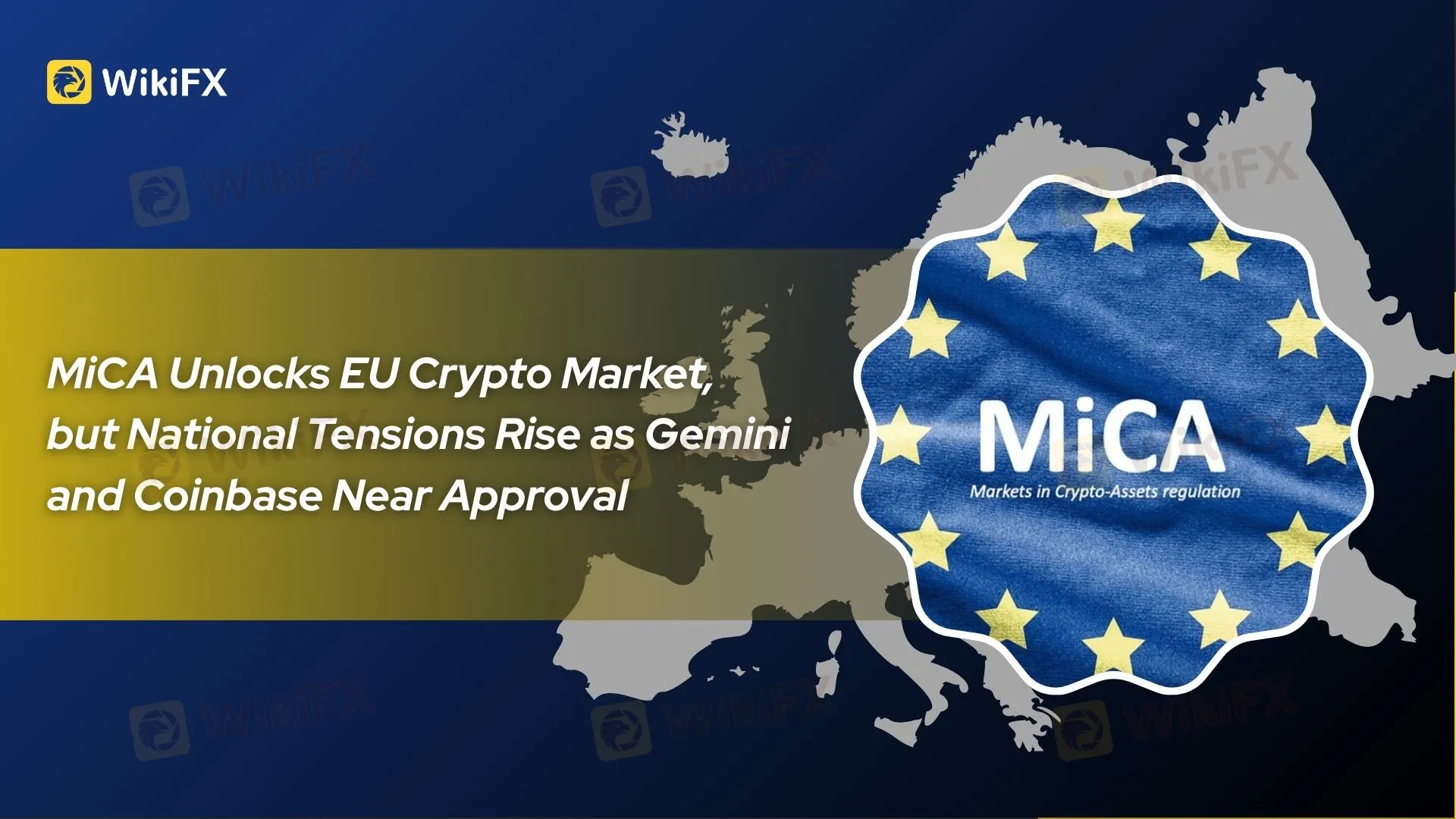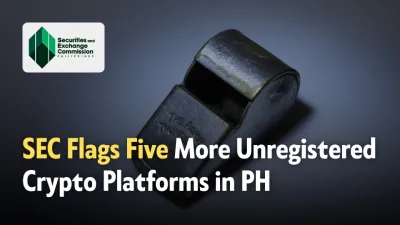MiCA Unlocks EU Crypto Market, but National Tensions Rise as Gemini and Coinbase Near Approval
Abstract:Gemini and Coinbase are poised to become the first major crypto firms licensed under the EU’s MiCA regulation, opening the door to 27-country access. But the fast pace of approvals in some countries—like Malta and Luxembourg—has triggered concerns among regulators about uneven oversight and the risk of regulatory arbitrage.

Gemini and Coinbase Close in on MiCA Licenses Amid Regulatory Unease
Europes sweeping Markets in Crypto-Assets (MiCA) regulation, which took effect earlier this year, promises to bring order to the crypto industry by creating a single licensing framework across all EU member states. Under MiCA, once a crypto firm secures approval in any EU country, it can operate across the bloc.
That ambition is now being tested.
Two U.S. exchanges—Gemini and Coinbase—are reportedly close to receiving their MiCA licenses, from Malta and Luxembourg respectively. Their approvals would mark a milestone for Europes bid to become a global crypto hub. But the speed of the licensing process has sparked quiet tensions among national regulators and raised questions about how consistently MiCA will be enforced.
Malta Moves Fast, Gemini Set to Benefit
Malta‘s Financial Services Authority (MFSA) has already licensed four crypto firms since MiCA went into force, including OKX and Crypto.com. Gemini is now expected to join the list, benefiting from Malta’s years of experience in supervising digital asset businesses. MFSA insists that rigorous anti-money laundering checks are in place.
However, sources say that the European Securities and Markets Authority (ESMA) has already reviewed Maltas approval process and is preparing an internal report. ESMA declined to comment, but the scrutiny signals a broader concern: Are some countries moving too fast to attract crypto business?
France and Luxembourg Offer Contrasting Views
Frances financial regulator, the AMF, has openly warned that the current setup—where ESMA creates rules but national agencies issue licenses—could lead to a “race to the bottom.” Without stronger central oversight, they argue, some jurisdictions may loosen standards to gain a competitive edge.
Coinbase, meanwhile, is eyeing a license from Luxembourg. The U.S.-listed exchange already employs 200 staff across Europe and plans to expand its Luxembourg office. Officials in the country reject claims that their process is lax, suggesting that criticism may stem more from rivalry than from actual shortcomings.
MiCAs Unity at Risk Without Coordinated Enforcement
While MiCA has been praised for aligning crypto oversight with traditional finance, its success depends heavily on consistent implementation. ESMA has limited authority to directly approve or reject license applications, which leaves national regulators with considerable discretion.
That decentralization may invite regulatory gaps—especially in an industry still grappling with the fallout from events like the FTX collapse.
With more firms preparing MiCA applications, how Gemini and Coinbase are approved—and under what scrutiny—could set the tone for the future. Will MiCA usher in a unified crypto regime? Or will fragmented enforcement undermine its promise?
For now, Europes crypto ambitions are advancing, but not without growing pains.
Read more

SEC Flags Five More Unregistered Crypto Platforms in PH
SEC PH warns on Aug. 20, 2025, that five more unregistered crypto platforms target Filipinos; enforcement and website/app blocking to follow.

Real Cases, Brave Voices: Turning Dealer Experiences into Rewards - and a Smarter Trading Community
That‘s the premise behind WIKIFX’s “Real Cases, Brave Voices” campaign, a groundbreaking event designed not only to recognize authentic user experiences but also to reward them. By encouraging traders to share their genuine reviews of forex brokers, WIKIFX empowers the community, enriches its platform, and sets new standards for industry transparency.

How Does a Forex Compensation Fund Protect Your Investments?
Forex compensation funds offer traders vital protection with coverage up to €20,000 if brokers default, boosting trust and dispute resolutions.

How Much Is a Pip per Lot? 0.01, 0.1, 1.0 Examples
Learn how much a pip is in forex by lot size: micro (0.01), mini (0.1), standard (1.0). Clear formulas, EUR/USD & USD/JPY examples, and risk management tips.
WikiFX Broker
Latest News
Why Are Investors Losing Trust in StoneX? What You Need to Know
Forex Lot Size Explained: A Complete Guide to Standard, Mini, & Micro Lots
Trader’s Way Exposed: Where Winning Trades Turn into Losses Overnight
Checkout List of 7 "FCA WARNED" Unauthorized Brokers
Pip Value Calculation Guide: How Much Is a Pip in Forex Really Worth?
Football Meets Finance: PSG Signs Global Partnership With WeTrade
Activity Upgraded! The 2025 WikiFX “Global Broker Review Contest” Grandly Launches!
What is Spread in Forex? How It Affects Your Trading Costs (A Complete Guide)
SEC Flags Five More Unregistered Crypto Platforms in PH
Webull Brings Crypto Trading Back to App
Rate Calc

